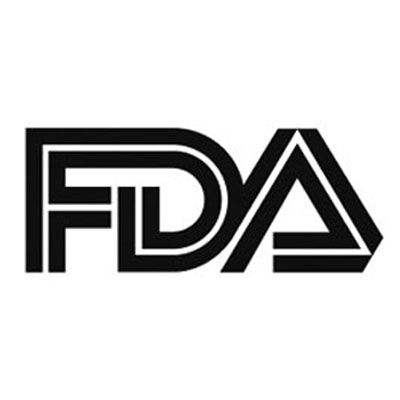Margetuximab Gains FDA Orphan Drug Designation in Gastric/GEJ Cancer
The FDA has granted margetuximab an orphan drug designation for the treatment of patients with gastric and gastroesophageal junction cancer.

The FDA has granted margetuximab an orphan drug designation for the treatment of patients with gastric and gastroesophageal junction (GEJ) cancer, according to a press release from developer MacroGenics.1
“We are pleased that the FDA has granted orphan status to margetuximab,” said Scott Koenig, MD, PhD, president and CEO of MacroGenics, in the press release. “We believe that our immune-enhancing antibody targeting HER2 has the potential to improve upon the clinical activity of existing standard of care for patients with gastric or gastroesophageal cancer.”
Margetuximab is an investigational Fc-engineered HER2-targeted monoclonal antibody that has already demonstrated antitumor activity in HER2-positive breast cancer.
The agent is currently being investigated in the phase 2/3 MAHOGANY trial as a combination regimen for the treatment of patients with treatment-naïve HER2-positive gastric or GEJ cancer (NCT04082364).
In the study, the agent is combined with INCMGA00012 (MGA012), an anti–PD-1 antibody, in cohort A. In cohort B, margetuximab is combined with MGA012 or MGD013, an anti–PD-1/anti–LAG-3 dual-affinity re-targeting (DART) protein, and chemotherapy. The comparator arm in the 4-arm cohort is trastuzumab (Herceptin) with chemotherapy.
One of the checkpoint inhibitor combinations will be selected for further study in part 2, which will be a large, randomized, 2-arm study comparing the chosen combination with trastuzumab and chemotherapy.
Across all treatment cohorts, margetuximab is administered at 15 mg/kg intravenously on day 1 of each 3-week cycle.
Primary end points are adverse events (AEs), objective response rate (ORR), and overall survival (OS); secondary end points include duration of response, progression-free survival (PFS), disease control rate (DCR), and quality of life.
In an earlier phase 2 study, margetuximab in combination with pembrolizumab (Keytruda), a PD-1 inhibitor, demonstrated promising survival findings in patients with HER2-positive gastroesophageal adenocarcinoma (GEA).2
The open-label, dose-escalation and -expansion study explored the use of 15 mg/kg margetuximab and 200 mg pembrolizumab administered every 3 weeks in patients with HER2-positive (IHC3-positive or IHC2-positive/FISH-positive) GEA who had progressed on or following trastuzumab. Patients were enrolled regardless of PD-L1 expression.
Among all patients with GEJ (n = 92), the ORR was 21.7%, and the DCR was 54.4%. The median PFS was 2.7 months and the median OS was 12.5 months. In patients with HER2 positivity by IHC3+ and PD-L1 positive expression (n = 25), the ORR was 48.0% and the DCR was 76.0%. The median PFS in the subgroup was 4.8 months, and the median OS was 20.5 months.
In patients with gastric cancer (n = 61), the ORR was 29.5%, and the DCR was 65.6%; the median PFS and OS were 4.1 and 13.9 months, respectively. In patients with gastric cancer and HER2- and PD-L1 positivity (n = 23), the ORR was 52.5% and the DCR was 82.6%. The median PFS in the subgroup was 5.5 months, and the median OS was 20.5 months.
Eight patients were still on treatment at the time of data cutoff.
The combination showed acceptable tolerability with grade 3 or higher treatment-related AEs reported in 19.6% of patients.
A biologics license application is currently under review by the FDA for margetuximab in combination with chemotherapy as a treatment of patients with HER2-positive breast cancer. The FDA has set a target action date of December 18, 2020, and has announced that an Oncologic Drugs Advisory Committee meeting will not be heldto discuss the application.
References
- MacroGenics Announces Margetuximab Granted Orphan Drug Designation in the U.S. for Gastric Cancer. Press release. MacroGenics, Inc. June 5, 2020. https://bit.ly/2zbmdXE.
- Catenacci DV, Park H, Uronis H, et al. Margetuximab (M) + pembrolizumab (P) for treatment of patients (pts) with HER2+ gastroesophageal adenocarcinoma (GEA) post-trastuzumab (T): survival analysis. Ann Oncol. 2019;30(suppl):2812. doi:10.1093/annonc/mdz253